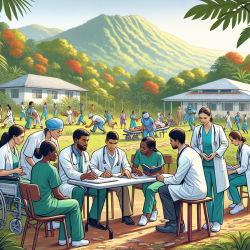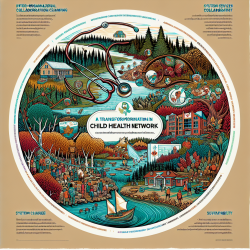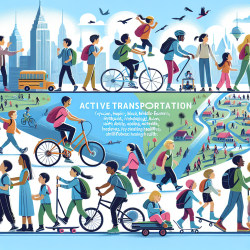Rehabilitation services are a crucial aspect of healthcare, yet in many developing regions like Northern Honduras, they are often underprioritized and under-resourced. A recent study titled Critical perspectives on rehabilitation education, practice and process: northern Honduras case study provides valuable insights into improving rehabilitation services in such settings. Here, we will explore key findings from the study and discuss how practitioners can apply these insights to enhance their practice.
Key Findings from the Study
The study employed a qualitative descriptive and interpretive approach, grounded in case study methodology, to understand the state of rehabilitation education, processes, and practices in Northern Honduras. The researchers conducted interviews and focus groups with rehabilitation workers and managers from three rehabilitation centers. The data were analyzed using thematic analysis, revealing several critical themes:
- Education: There is a significant need for increased awareness and understanding of rehabilitation services among the general population and other healthcare professionals, particularly medical doctors. The lack of knowledge and misconceptions about the role of rehabilitation workers hinder effective care.
- Training and Continuing Education: Ongoing training and professional development opportunities for rehabilitation workers are essential. Peer learning, workshops, and networking opportunities can help sustain engagement and improve service quality.
- Rehabilitation Model: The current model of rehabilitation services in Northern Honduras is heavily reliant on charity and voluntary support, which is unsustainable. There is a need for more structured and reliable funding sources.
- Access to Services: Geographical distribution of rehabilitation centers, limited infrastructure, and insufficient numbers of trained professionals restrict access to services. Transportation and disability-related challenges further exacerbate these issues.
- Inter-professional Practice: Effective collaboration between different healthcare professionals, including physicians and rehabilitation workers, is crucial. The current hierarchical structure limits inter-professional practice, affecting the quality of care.
Recommendations for Practitioners
Based on the study's findings, practitioners can take several steps to improve rehabilitation services in Northern Honduras:
- Enhance Awareness and Education: Initiatives to educate the general population and healthcare professionals about the importance and role of rehabilitation services are vital. This can include community workshops, informational campaigns, and collaboration with medical schools to integrate rehabilitation education into their curricula.
- Invest in Training and Professional Development: Providing continuous education opportunities for rehabilitation workers can improve service quality. Encouraging peer learning and organizing workshops and seminars can help keep professionals updated on the latest practices and techniques.
- Advocate for Sustainable Funding: Practitioners should advocate for more reliable funding sources for rehabilitation services. This can involve engaging with government bodies, NGOs, and international organizations to secure long-term financial support.
- Improve Access to Services: Addressing the geographical and infrastructural barriers to rehabilitation services is crucial. This can include setting up mobile clinics, improving transportation facilities, and ensuring that rehabilitation centers are well-equipped and staffed.
- Foster Inter-professional Collaboration: Encouraging a culture of collaboration between different healthcare professionals can enhance the quality of care. This can involve joint training sessions, interdisciplinary meetings, and creating formal structures for inter-professional communication and collaboration.
By implementing these recommendations, practitioners can significantly improve the quality and accessibility of rehabilitation services in Northern Honduras, ultimately leading to better health outcomes for the community.
To read the original research paper, please follow this link: Critical perspectives on rehabilitation education, practice and process: northern Honduras case study.










